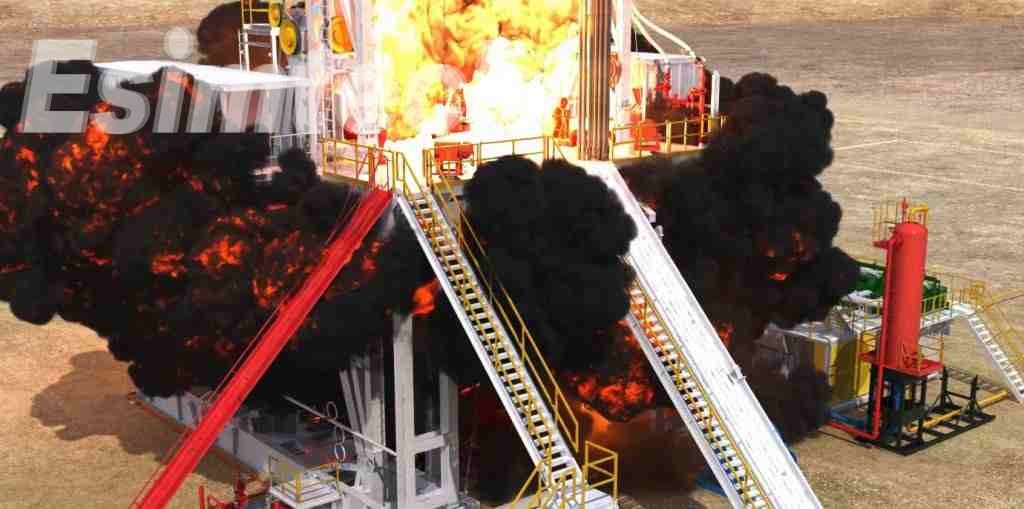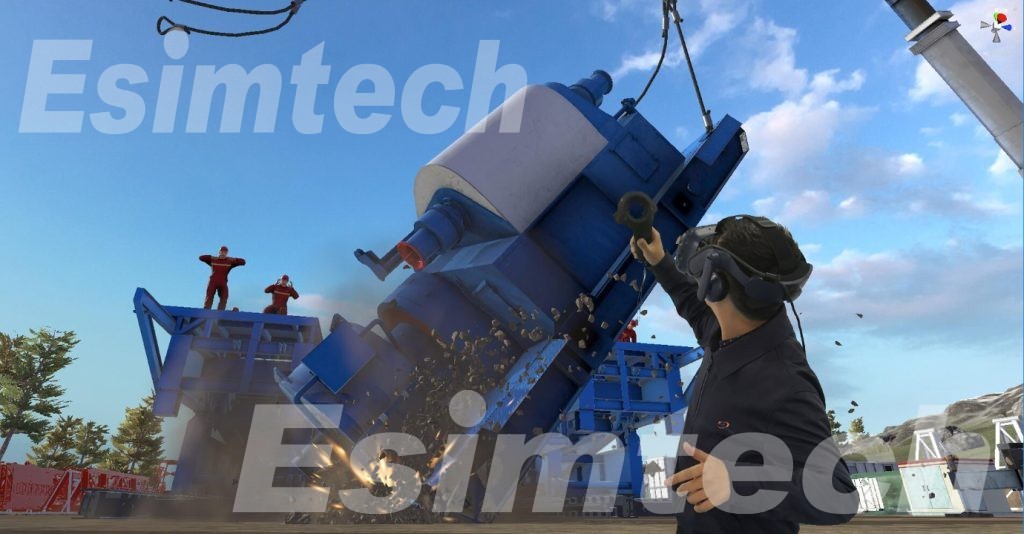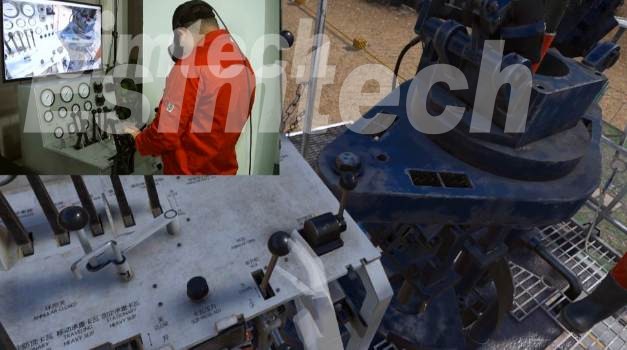Analyzing Oil Field Accidents: What are the Influences and How to Prevent
The extraction and utilization of oil have irrevocably shaped the modern world, providing the energy needed for industries, transportation, and daily life. However, the pursuit of this valuable resource isn’t without its perils. Oil field accidents, ranging from minor operational mishaps to catastrophic events, can have profound and lasting consequences on both human lives and the environment. In this comprehensive article, we delve into the intricate causes and impacts of oil field accidents, explore strategies for prevention, and shed light on how simulation is emerging as a transformative tool in enhancing safety measures within the oil and gas industry.

What are Oil Field Accidents?
Oil field accidents refer to unforeseen incidents that occur during various phases of oil and gas exploration, extraction, production, transportation, and processing. These accidents encompass a wide range of events, from minor operational mishaps to catastrophic disasters. They can involve equipment malfunctions, explosions, fires, blowouts, pipeline leaks, and toxic chemical releases. These incidents often result from a combination of factors such as technical failures, human errors, inadequate maintenance, and external conditions like weather or geological challenges.
Oil field accidents have significant impacts on human lives, the environment, economies, and company reputations. They can lead to loss of life, injuries to workers, and damage to nearby communities. Environmental consequences include contamination of water bodies, harm to aquatic life, disruption of ecosystems, and long-term ecological damage. Economically, these accidents can disrupt oil production, cause supply shortages, and lead to cleanup costs, legal settlements, and fines. Preventing such accidents requires a comprehensive approach involving stringent regulations, robust training, advanced technologies, and a proactive safety culture.
What are the Influences of Oil Field Accidents?
Oil field accidents exert a profound and multi-faceted influence that reverberates across environmental, economic, and societal dimensions. These unfortunate incidents, encompassing oil spills, fires, explosions, and structural failures, can inflict extensive and enduring damage. Here are some major influences.
- Human Lives: Oil field accidents can tragically result in the loss of human lives and cause injuries to workers involved. The dangerous nature of these operations means that even a single accident can have profound emotional and social repercussions for affected families and communities.
- Environmental Devastation: The environmental impact of oil field accidents is striking. Oil spills contaminate water bodies, soil, and shorelines, endangering aquatic ecosystems and marine biodiversity. The release of toxic gases, particulate matter, and volatile compounds during fires and explosions contributes to air and soil pollution, impairing local ecosystems and potentially affecting human health.

- Economic Disruption: The consequences are substantial economically. The cessation of oil production due to accidents leads to revenue loss for oil companies and regions dependent on oil-related activities. The financial burden escalates with the considerable costs incurred in cleanup operations, encompassing containment, recovery, remediation, and compensation for affected parties. Moreover, legal action and regulatory fines can exacerbate the financial strain on responsible companies.
- Reputation and Trust: Public perception and policies are also substantially affected. High-profile accidents trigger public outcry and increased scrutiny of industry practices. This results in calls for more stringent regulations, improved safety measures, and accelerated transitions to cleaner energy sources. Governments are compelled to reassess and fortify environmental and safety regulations, potentially leading to long-term changes in the energy landscape.
In summation, oil field accidents cast a long shadow over the environment, economy, society, and policy framework. Preventive measures, stringent safety protocols, and comprehensive emergency preparedness are imperative to mitigate these multifaceted impacts and move towards a safer and more sustainable energy future.
How to Prevent Oil Field Accidents?
Preventing oil field accidents requires a multi-faceted approach that integrates advanced technology, rigorous safety protocols, comprehensive training, and proactive regulatory oversight.
- Robust Training: Well-trained personnel are essential for mitigating the risks associated with oil field operations. Simulation-based training provides workers with a controlled environment to practice safety protocols and emergency response procedures.
- Regular Maintenance: Regular inspection and maintenance of equipment, machinery, and infrastructure are crucial to identifying potential issues before they escalate into accidents. Simulation can predict equipment failures and optimize maintenance schedules.
- Advanced Technologies: Leveraging technologies such as sensors, real-time monitoring, and predictive analytics can provide early warnings of potential problems, enabling timely interventions based on simulations of various scenarios.
- Stringent Regulations: Government bodies play a critical role in enforcing safety standards and ensuring compliance with best practices. Simulation aids in evaluating the efficacy of regulatory measures by simulating different scenarios.
- Cultivating a Culture of Safety: Fostering a culture of safety within organizations involves encouraging open communication, reporting near-miss incidents, and emphasizing worker well-being. Simulation can motivate employees to actively participate in safety drills and exercises.
- Investment in Research and Innovation: Research into safer extraction methods, materials, and technologies is essential for preventing accidents. Simulation serves as a testing ground for innovative solutions before real-world implementation.

How Simulation Affects in Preventing Oilfield Accidents?
Simulation plays a pivotal role in preventing oil field accident emergencies by offering a controlled and realistic environment for training, testing, and refining safety measures.
- Replicate real-world oil field operations: Enabling oil companies to identify potential vulnerabilities and risks. Through simulated scenarios, companies can assess the effectiveness of safety measures, emergency response plans, and equipment functionality without endangering personnel or the environment.
- Facilitate training and education: Workers can engage in virtual drills, experiencing emergencies such as oil spills, fires, or equipment failures in a safe environment. This hands-on experience enhances their ability to respond effectively and efficiently during actual crises.
- Refine emergency response strategies: Companies can assess different strategies for containing oil spills, combating fires, and evacuating personnel, identifying the most optimal approach for specific situations.
- Foster Collaboration: Simulations foster collaboration among various stakeholders, including engineers, safety personnel, and regulators. By visualizing and analyzing potential accident scenarios together, these stakeholders can collectively devise and implement better preventive measures.
In summary, simulation empowers the oil industry to proactively prevent accidents by identifying vulnerabilities, training personnel, refining emergency responses, and fostering collaboration. This technology-driven approach not only minimizes risks but also strengthens the industry’s commitment to safety, environmental protection, and sustainable practices.

Real-World Applications of Simulation in Oil Field Safety
- Drilling Operations: Drilling simulators can replicate drilling processes, analyzing variables like pressure, depth, and equipment performance. This aids in identifying potential problems and optimizing drilling procedures to prevent accidents.
- Predicting Blowouts: Blowouts, which occur when pressure control systems fail, can lead to catastrophic accidents. Simulations can predict blowout scenarios, helping engineers design fail-safes to prevent such incidents.
- Pipeline Integrity: Pipeline leaks can result in environmental disasters. Simulation can assess factors like corrosion, pressure changes, and material fatigue, guiding maintenance schedules and preventing leaks.
Incorporating simulation technology into these critical aspects of oil field operations demonstrates its tangible impact on enhancing safety. By accurately modeling complex processes, predicting potential accidents, and guiding maintenance strategies, simulations contribute to a safer and more efficient oil industry that minimizes risks to personnel, the environment, and surrounding communities.
Conclusion
Oil field accidents pose significant threats to both human lives and the environment. Oil and gas simulation stands as a powerful ally in the ongoing battle to enhance safety within the industry. By providing a controlled environment for scenario analysis, training, and innovation, simulations empower oil and gas professionals to make informed decisions, prevent accidents, and ensure the sustainable and responsible extraction of energy resources. As technology continues to evolve, simulations will undoubtedly play an increasingly vital role in shaping the future of oil field safety.
